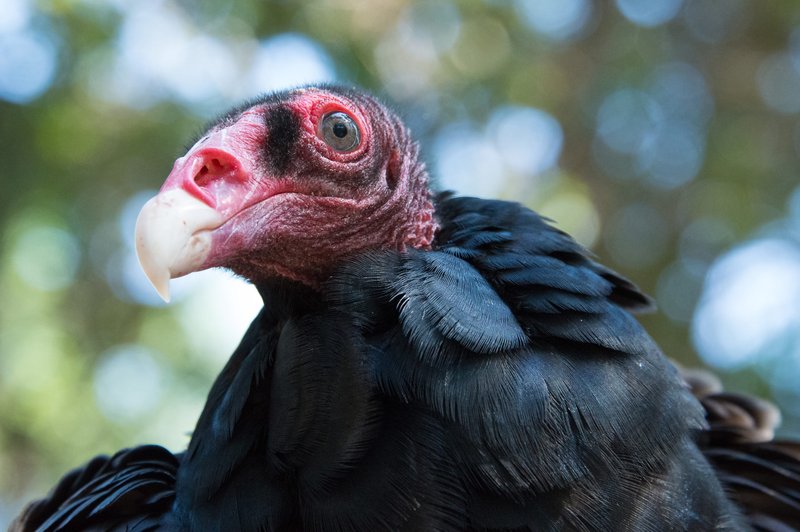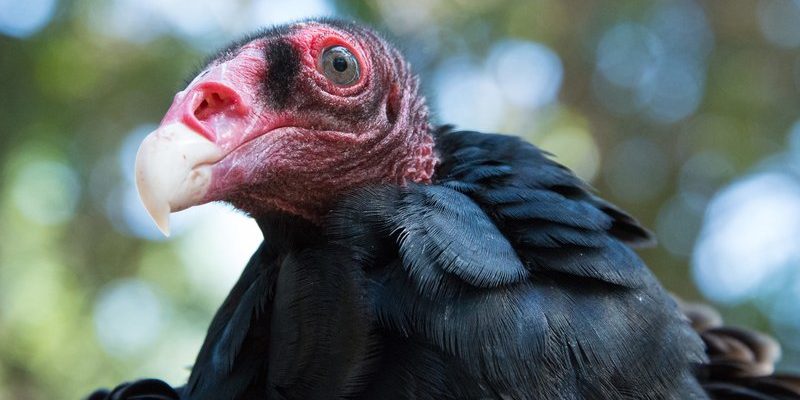
Turkey vultures, scientifically known as *Cathartes aura*, are often misunderstood. While they might not win any beauty contests, their behavior and lifestyle are absolutely captivating. From their astonishing sense of smell to their impressive flight patterns, these birds are far more than just scavengers. So, grab your binoculars and get comfy, because we’re about to explore the wild world of turkey vultures!
1. Remarkable Sense of Smell
Here’s the thing: not all vultures have a great sense of smell, but turkey vultures do! This unique ability allows them to detect decaying animals from over a mile away. Imagine being able to sniff out lunch from that distance! Most birds rely on sight rather than scent, but turkey vultures have evolved to use their sense of smell to find their meals.
They can detect the gases produced by decomposing flesh, specifically *butyric acid*. This compound is released by dead animals and serves as a beacon for hungry turkey vultures. So, the next time you see one soaring above, remember they’re on a mission—hunting for nature’s leftovers!
2. Efficient Cleanup Crew
Turkey vultures are nature’s unsung heroes. By feeding on dead animals, they help prevent the spread of disease. When you think about it, it’s pretty remarkable that these birds contribute to a cleaner environment. If left unchecked, carcasses could become breeding grounds for pests and pathogens.
Their digestive systems are incredibly acidic, which means they can safely eat rotting meat without getting sick themselves. This is a huge advantage! It’s like having a built-in disinfectant that helps keep ecosystems in balance. Honestly, without turkey vultures, we’d face a lot more problems with waste management in nature.
3. Unique Appearance
Turkey vultures might not have the most glamorous looks, but their appearance is definitely interesting. They have a characteristically bald head, which isn’t just for show. This featherless crown helps keep them clean when they’re digging into less-than-fresh meals.
Their dark brown feathers and long, wide wings give them a distinctive silhouette as they glide through the air. A fun fact: their wingspan can reach up to six feet! When you see a turkey vulture soaring, it’s a reminder of how elegantly they navigate the skies. It’s all part of their charm!
4. Social Birds
While some birds prefer solitude, turkey vultures are social creatures. They often roost in groups, particularly at night. You might see them perched on trees or buildings, enjoying each other’s company before they head out to hunt.
These gatherings aren’t just for socializing; they also offer safety in numbers. Roosting together helps protect them from potential predators while they rest. Plus, it’s fun to hang out with friends! So, if you spot a bunch of them together, know that they’re just enjoying some quality time with their pals.
5. Exceptional Flyers
Turkey vultures are like the aerobatic performers of the bird world. They can glide for hours without flapping their wings, riding thermals—those rising columns of warm air. This allows them to cover vast distances while conserving energy.
You might be wondering how they know where to go. As it turns out, turkey vultures are masters at reading their surroundings. They can spot potential food sources from the sky, using both sight and smell to navigate. It’s a clever combination of skills that makes them exceptional at what they do!
6. Terrific Temperature Regulators
You may not think about it, but turkey vultures have a unique way of staying cool. They often bask in the sun to regulate their body temperature. This behavior, known as “thermoregulation,” allows them to absorb heat during the cooler morning hours and helps them maintain their energy levels throughout the day.
In addition to basking, you might see them spreading their wings wide. This isn’t just for show; it helps them cool down when it gets hot. By exposing their skin to the breeze, they can lower their body temperature. It’s a simple yet effective strategy to beat the heat!
7. Territory and Nesting
When it comes to nesting, turkey vultures are not picky. They prefer to make their homes in rocky crevices, hollow trees, or even abandoned buildings. Unlike many other birds, they don’t build actual nests; instead, they lay their eggs directly on the ground or in a shallow depression.
Their typical clutch consists of one to three eggs, which they incubate for about 30-40 days. During this time, both parents take turns keeping the eggs warm. This shared responsibility is quite charming and showcases their teamwork as parents.
8. Longevity and Lifespan
Turkey vultures have surprisingly long lifespans for birds. In the wild, they can live up to 16 years, but some have been known to live even longer in captivity. That’s a decent chunk of time for a bird!
Their longevity is partly due to their scavenging lifestyle, which allows them to avoid many of the dangers other birds face, like predators and competition for food. If you ever see one soaring above, remember there could be a wise old vulture, with stories to tell, flying above you!
9. Cultural Significance
Turkey vultures have made their mark not just in nature, but also in various cultures around the globe. In some Native American traditions, they are seen as symbols of cleansing and renewal because of their scavenging habits. They help to rid the land of decay and disease.
In contrast, other cultures might view them as omens or symbols of death. It’s interesting to see how a single bird can evoke such different feelings and meanings depending on the perspective. This duality highlights the complexity of human interactions with nature.
10. Conservation Status
Despite being incredibly beneficial, turkey vultures face threats from habitat loss, poisoning, and vehicle collisions. However, they’re currently not considered endangered due to their wide distribution and adaptability.
Conservation efforts are important to ensure they continue to thrive. Simple actions, like educating others about their value and protecting their habitats, can go a long way in ensuring these birds remain a vital part of our ecosystem. Remember, every little bit helps!
In conclusion, turkey vultures are more than just scavengers; they are remarkable birds with unique adaptations and important roles in our ecosystem. From their exceptional sense of smell to their impressive flying skills, they contribute to a healthier environment. So next time you spot one soaring overhead, take a moment to appreciate the incredible life of a turkey vulture!

